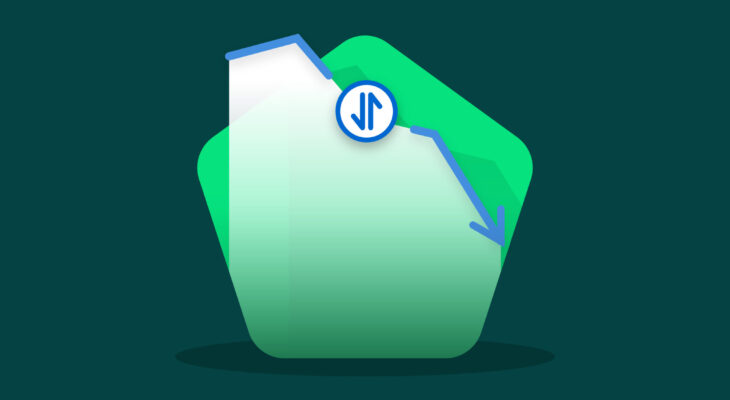We are greatly co-dependent on the telecommunication services, offered by internet service providers. Most households in the United States have either bundled deals or, choose standalone plans as per their requirements.
A bundled deal is where you get internet, TV, and home phone, all together in a single package. There are numerous plans available for customers who require fewer services. Having a reliable broadband connection is completely necessary in today’s world. We rely on it for many of our daily tasks. These include grocery shopping, downloading and uploading of data, education, health, and so much more.
A steady internet connection entails a bandwidth that doesn’t go through glitches. There are no buffering issues, and the download speed remains consistent, regardless of your location and the plan price. HughesNet Internet is one such ISP, offering a stable download speed of up to 25 Mbps to all its customers.
Satellite data vs Terrestrial data
You can be living in an urban city or living at the edge of civilization. If you are located within the USA and have a clear view of the southern sky, HughesNet will be available to you. Most ISPs offer terrestrial networks for their internet connections. However, these connections aren’t always available in rural areas. They only have limited possibilities for connectivity.
Moreover, terrestrial internet connections usually offer more data. Some even come with unlimited data plans. That is where things get a little tricky. Their satellite counterparts like HughesNet and Viasat come with soft data caps. They both offer limited high-speed data with their internet plans. In case a customer goes above the listed limit, they will reduce the internet speed to 1 – 3 Mbps.
Buy data tokens
While this doesn’t sound like an ideal situation, it is still better than having no internet at all. HughesNet also offers data tokens for its customers. Take this situation for instance. You have guests over for the weekend. Your listed data plan, which is usually enough for you, runs out of high-speed data. You don’t have any left to last the entire month. There are two options. Bear with the reduced speeds and wait for the next month to start. Or, buy data tokens at any point during the month and get access to high-speed data.
If you have a limited budget and cannot afford to buy tokens, then you’re in a fix, especially when you are a high-end user. The reduced download speed is enough for casual browsing. However, if you want to stream or download media content or need data for online study assignments, slow speeds will not work. We recommend the following steps to mitigate the occurrence of such an issue.
Before getting into the details, some facts are contributing towards excessive internet usage. Most users rely on streaming services for their entertainment needs these days. Such services include YouTube, Netflix, Hulu, etc. People all over the world had to face lockdown situations due to the ongoing pandemic. This situation increased internet usage as well. It in turn raised the amount of data that is being used at the moment.
Now, without further ado, let’s get into those steps that we were talking about.
-
Reduce the video quality from HD to SD
HD quality videos tend to eat up a lot of data. It is usually around three times more than what a standard definition video consumes. To save up on your monthly data, you need to be very careful, especially when you’re on a satellite internet plan. Services like Netflix allow users to adjust the quality of their videos manually. Hulu offers the same feature.
If you have trouble with manually adjusting the video quality, then HughesNet is here to help. You get the Video Data Saver option, free of cost, with every internet plan. What happens is that whenever you’re watching a video on any application, HughesNet will automatically jump in to reduce the quality of that video. You will get everything in standard definition.
-
Close any unwanted applications that may be running silently
Sometimes, we are unaware of certain applications that are running quietly in the background on our devices. An important example is our smartphones. We are not expecting to somehow run out of battery, but we sure do. The reason behind this is always some background app that was silently consuming battery. The same is with internet data. Certain applications require location services on our devices. They trace your location through GPS, constantly consuming data.
Similarly, downloading services like BitTorrent always stay online, unless you manually shut them down. Check all your devices regularly and take an inventory of all the applications that may be consuming data. If you require more data than is allowed with your internet plan, HughesNet offers another outstanding feature. Every internet plan comes with 50 GB extra bonus zone data available between 2 am, and 8 am. Use this instead of the regular high-speed data.
-
Set a meter on your usage
If you’re a HughesNet user, you can make use of their application. You can download it and utilize the usage meter provided by the ISP. It allows you to see the exact amount of data that use in real-time. It also offers a feature that helps in comparing your current data usage with your expected usage. It can help in making informed decisions and adjustments, which can eventually help in saving data. If your listed data limit is exceeded at any point during the month, you will know when and how.
These were some of the tips that we had for you. In case you end up confused about your plan limit or want to shift to a higher-tier internet plan, we recommend contacting HughesNet customer services. You can also check out the Localcabledeals website for further assistance.

